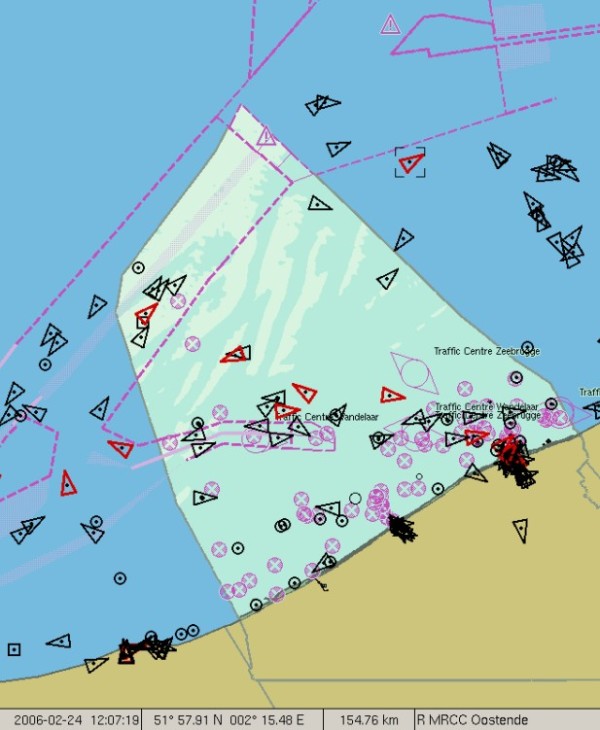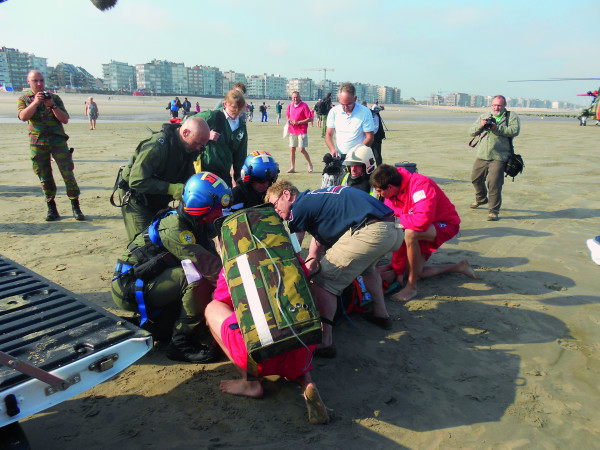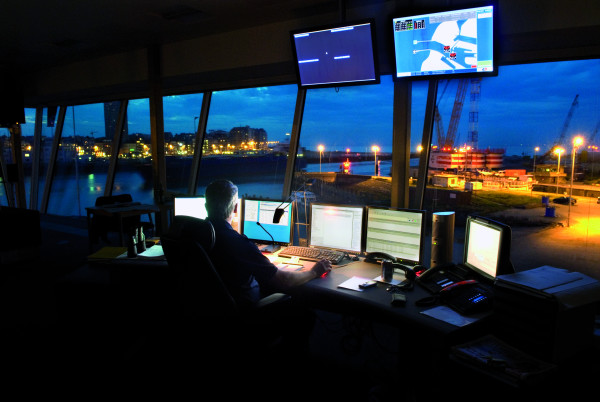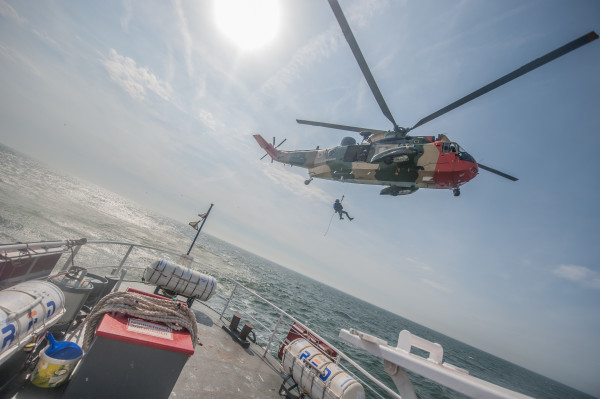Emergencies at sea
Tasks of the MRCC

The Maritime Rescue and Coordination Centre (MRCC) in Ostend is the first point of contact for incidents at sea, eg: persons and vessels in distress, accidents and oil pollution.
After an emergency call, the MRCC starts up the dispatching of several tasks to the different coas guard partners.
The Search And Rescue SAR- activities are coordinated from the MRCC Ostend:
coordination of SAR operations and deployment of support units;
coordinate the implementation of medical evacuations and assistance;
reporting and coordinating the implementation of removal of marine pollutants;
monitoring the emergency frequencies for shipping;
continuously monitor and ensure maritime safety;
register, report and evaluate SAR or other actions.
SAR Area

The operational Search And Rescue (SAR) area of MRCC Ostend is the entire Belgian Exclusive Economic Zone (EEZ). Geographically, this zone covers a small area of the North Sea but it is one of the busiest shipping areas in the world.
On average the region sees 50,000 seagoing ship movements and 40,000 ferry, 25,000 recreational boating and around 15,000 fishing boat movements. More than 200 million tons are transported annually within this zone. A proportion of these goods is classified as hazardous and/or polluting. Furthermore, the area contains access channels to the Flemish and Zeeland ports, which also demand special consideration to ensure that this traffic flows safely and fluently.
Units

The MRCC does not have its own units. Through contracts or agreements with interested parties, the MRCC can use SAR actions to use other units and services.
SAR units
Specially trained staff with the equipment to perform search and / or rescue operations - are instantly available after an alarm. Next SAR units are continuously available for search and rescue operations, including mainly:
Dynamic units of the fleet (Oostende);
Helicopters of the 40th Squadron Air Component Koksijde.
lifeboats of voluntary rescue services in Blankenberge an Ship Support in Nieuwpoort
Support units
In addition, several units at sea or units with additional resources can provide assistance after a request by the MRCC.
General obligation: for masters of vessels, there is an internationally accepted requirement - if this can be performed without endangering your vessel, crew or passengers - to provide assistance to any person who is in a life-threatening situation at sea.
International

The MRCC is also in a continuous cooperation with the coastal stations of the neighboring countries:
The Netherlands
Coastguard Center Den Helder
France
C.R.O.S.S Gris - Nez / Maritime Affaires
United Kingdom
MRCC Dover
More information about the Coast Guard organization and all Coast Guard procedures with all the additional resources of any federal or regional entity of the Coastguard Agency, from which the mrcc is just one part of the chain, is available on the next webpage www.kustwacht.be
Coast Guard

The Coast Guard is responsible for the cooperation between the partners authorised for the North Sea. The Belgian part of the North Sea measures 3600 km² and is also known as Belgium’s eleventh province.
No less than 17 governmental institutions (both regional and federal) are authorised for all these activities. The main responsibility of the Coast Guard is to ensure a good cooperation between all these partners so as increase the efficiency of operations at sea.
The Coast Guard is made up of 2 branches:an administrative branch and an operational branch (this is the coast guard centre). The coast guard centre exists out of the MRCC in Ostend and the MIK (Maritime Information Junction) located on the Naval Base Zeebrugge. There are three complementary administrative bodies working together: the policy-making body, the consultation body and the secretariat.
Emergency numbers
Telephone / Fax:
Dries Boodts
head of MRCC - SAR
dries.boodts@mow.vlaanderen.be
Mob +32 485 27 17 08
Belgium
Tel.: +32 59 70 10 00 operational emergency number MRCC
Tel.: +32 59 70 11 00 operational emergency number MRCC
Navtex
Frequency 518 kHz is used by coastal station ‘Ostend Radio’ for transmitting emergency messages, issued by the MRCC.
Emergency frequencies
Following VHF CH16, CH67
Recording & Replay:
All communication on VHF, HF radio channels and on the emergency frequencies is recorded 24/7. The composed traffic image from radar and AIS is also available in the archive. A replay of the traffic image and / or conversations can only be obtained through an official request by the competent authorities (police or judicial).
